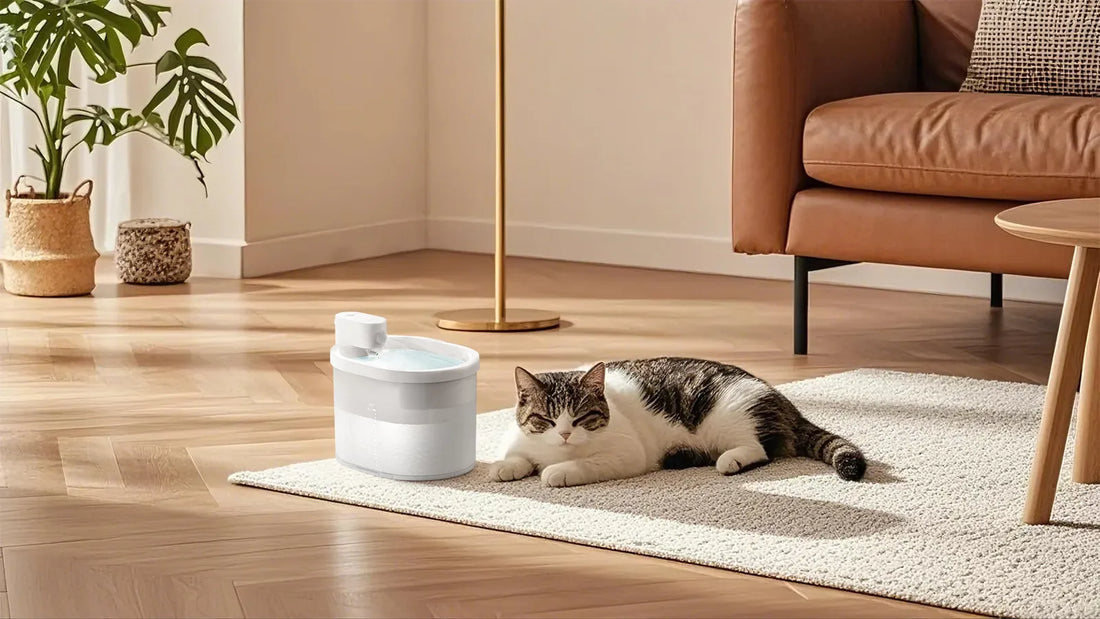If your cat has suddenly stopped using the litter box, you're likely feeling frustrated and concerned. This behavior can be puzzling and stressful for pet owners, but understanding the underlying causes is the first step toward resolving the issue. Cats are creatures of habit, and any deviation from their routine can signal a problem that needs attention. In this article, we'll explore the possible reasons why your cat may have stopped using the litter box and provide actionable solutions to help you address the situation effectively.
Medical Issues That Could Be the Culprit
One of the most common reasons a cat stops using the litter box is an underlying medical condition. Cats are masters at hiding pain and discomfort, so changes in their bathroom habits can be an early warning sign. Urinary tract infections, kidney disease, diabetes, and arthritis are just a few health issues that could make using the litter box painful or difficult. If your cat is straining to urinate, producing very little urine, or showing signs of discomfort, it's crucial to consult a veterinarian immediately. Early diagnosis and treatment can prevent more serious complications and help your cat return to their normal routine.
Stress and Anxiety: A Hidden Trigger
Cats are highly sensitive to changes in their environment, and stress or anxiety can lead to litter box avoidance. Major life events such as moving to a new home, the arrival of a new pet or family member, or even changes in your daily schedule can disrupt your cat's sense of security. Additionally, conflicts with other pets in the household can create tension, causing your cat to seek alternative places to relieve themselves. To reduce stress, try to maintain a consistent routine and provide your cat with a safe, quiet space where they can retreat. Using pheromone diffusers or calming supplements may also help alleviate anxiety.
Litter Box Preferences and Maintenance
Sometimes, the issue lies with the litter box itself. Cats can be picky about the type of litter, the size and shape of the box, and even its location. If you've recently switched to a new type of litter or moved the box to a less accessible area, your cat may be expressing their displeasure by avoiding it. Ensure the litter box is clean, as cats are less likely to use a dirty box. Scoop it daily and perform a thorough cleaning at least once a week. If you have multiple cats, provide one litter box per cat plus an extra one to prevent competition and ensure each cat has access to a clean box.
Behavioral Changes and Training
Behavioral issues can also contribute to litter box avoidance. Some cats may develop a preference for certain surfaces, such as carpets or rugs, over the litter box. Others may associate the box with a negative experience, such as being startled while using it. To address these issues, try retraining your cat by placing them in the litter box after meals or naps and rewarding them with treats or praise when they use it. If your cat has developed a preference for a specific surface, consider placing a litter box in that area and gradually moving it to a more suitable location over time.
Environmental Factors to Consider
Your cat's surroundings play a significant role in their litter box habits. Loud noises, strong odors, or high-traffic areas near the litter box can deter your cat from using it. Ensure the box is placed in a quiet, low-traffic location where your cat feels safe and undisturbed. Additionally, avoid placing the box near their food and water bowls, as cats prefer to keep their eating and elimination areas separate. Making small adjustments to your cat's environment can have a big impact on their willingness to use the litter box.
When to Seek Professional Help
If you've tried addressing potential medical, environmental, and behavioral issues and your cat still refuses to use the litter box, it may be time to seek professional help. A veterinarian or a certified animal behaviorist can provide expert guidance and develop a tailored plan to address the problem. They may recommend additional tests to rule out medical conditions or suggest advanced behavioral modification techniques to help your cat overcome their aversion to the litter box.
Dealing with a cat that has stopped using the litter box can be challenging, but with patience and persistence, you can identify and resolve the underlying issue. By understanding your cat's needs and making the necessary adjustments, you can restore their litter box habits and create a happier, healthier environment for both you and your feline friend. Don't let this common problem strain your bond with your pet—take action today and help your cat get back on track.













